If I was a poet, I had become one because poetry, more intensely than any other practice, could not evade its anachronism and marginality and so constituted a kind of acknowledgment of my own preposterousness, admitting my bad faith in good faith, so to speak.
BEN LERNERI think the anti-intellectualism of a lot of contemporary fiction is a kind of despairing of literature’s ability to be anything more than perfectly bound blog posts or transcribed sitcoms.
More Ben Lerner Quotes
-





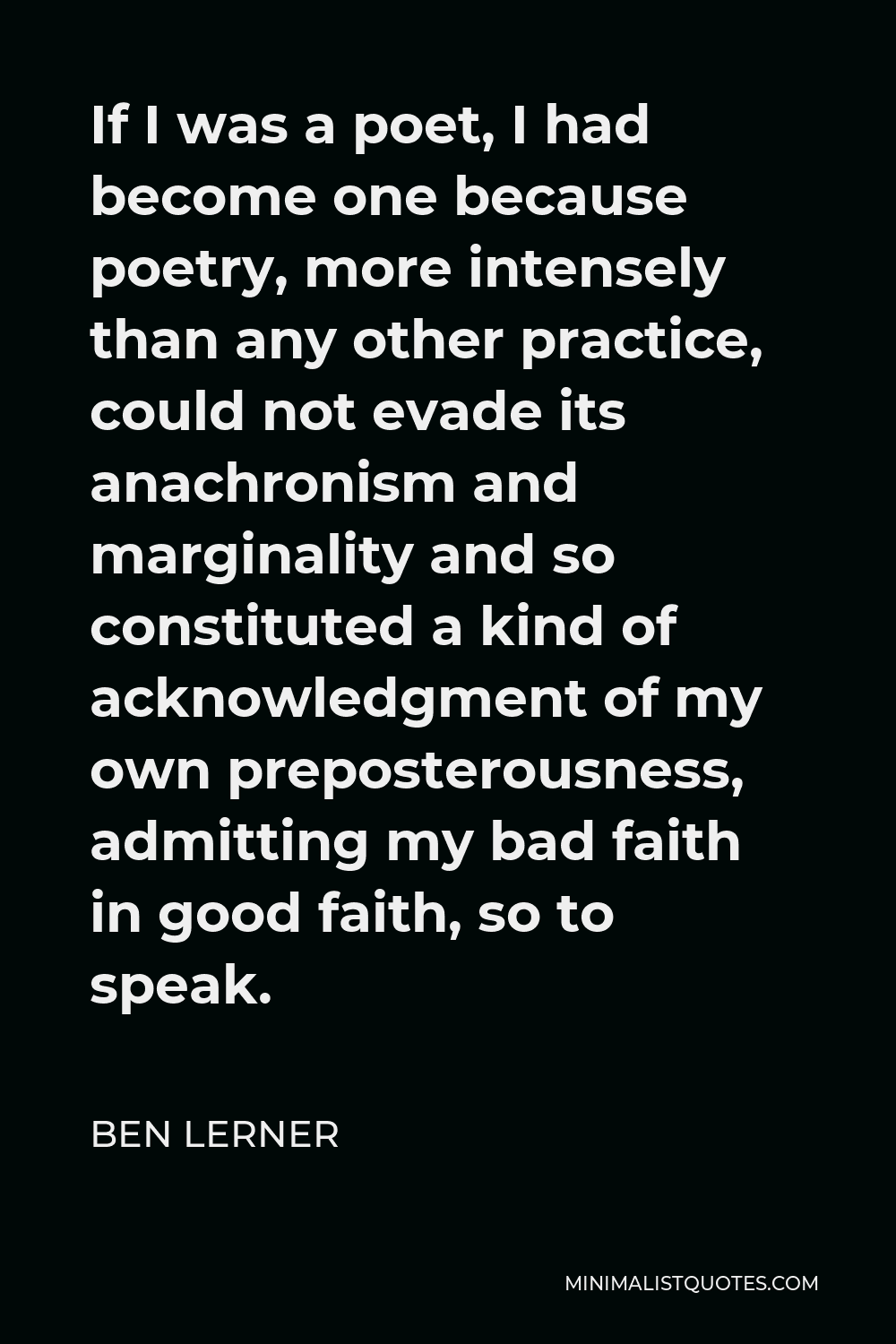
-






I was a violent, bipolar, compulsive liar. I was a real American.
BEN LERNER -





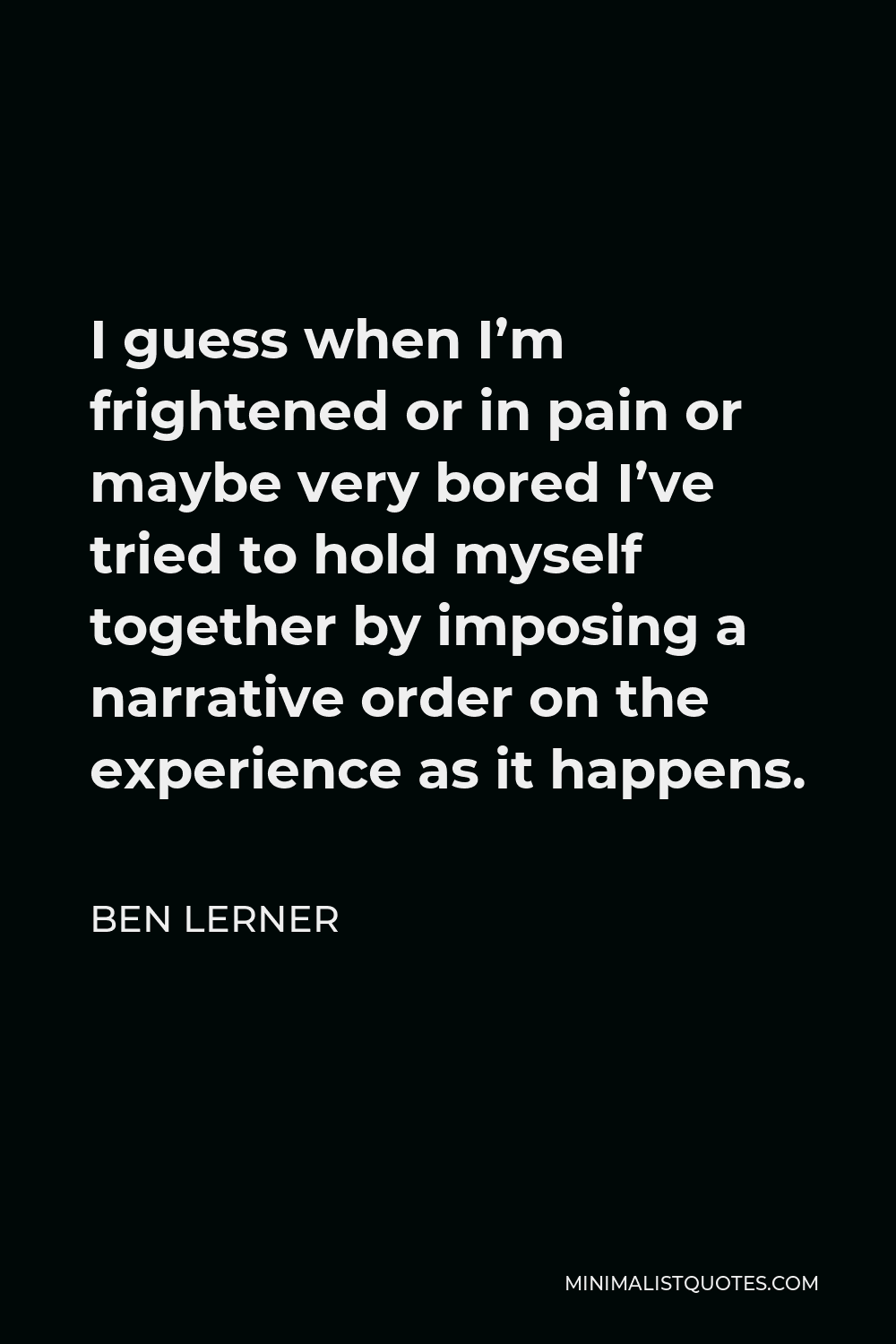
I guess when I’m frightened or in pain or maybe very bored I’ve tried to hold myself together by imposing a narrative order on the experience as it happens.
BEN LERNER -






I’ve been building a fiction in part around the Marfa poem since my brief residency there, which has kept it from receding into the past.
BEN LERNER -





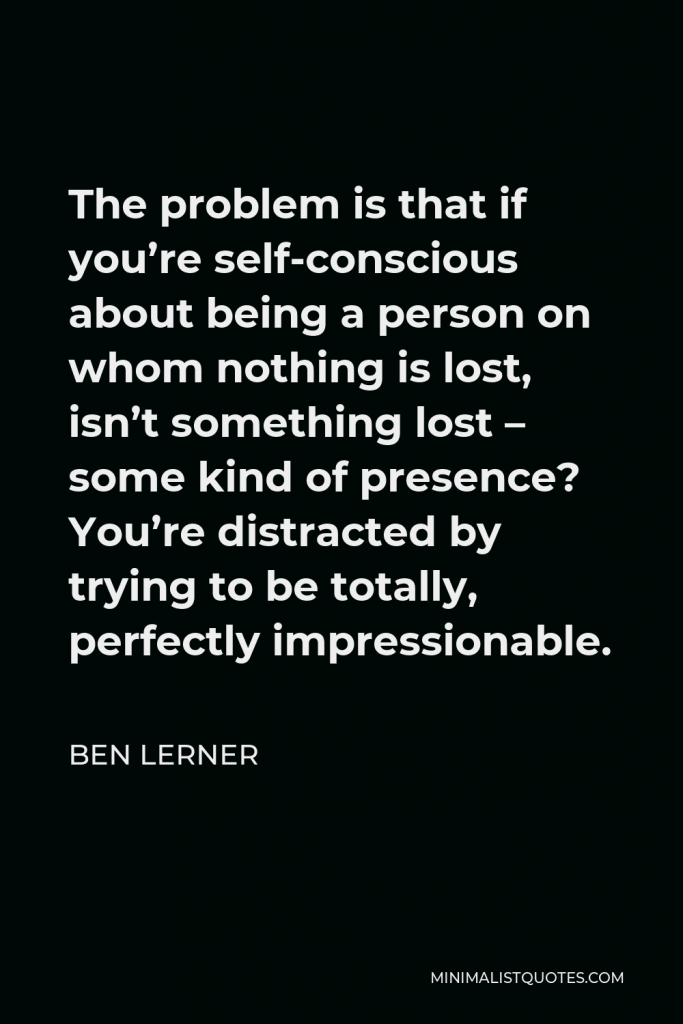

The problem is that if you’re self-conscious about being a person on whom nothing is lost, isn’t something lost – some kind of presence? You’re distracted by trying to be totally, perfectly impressionable.
BEN LERNER -





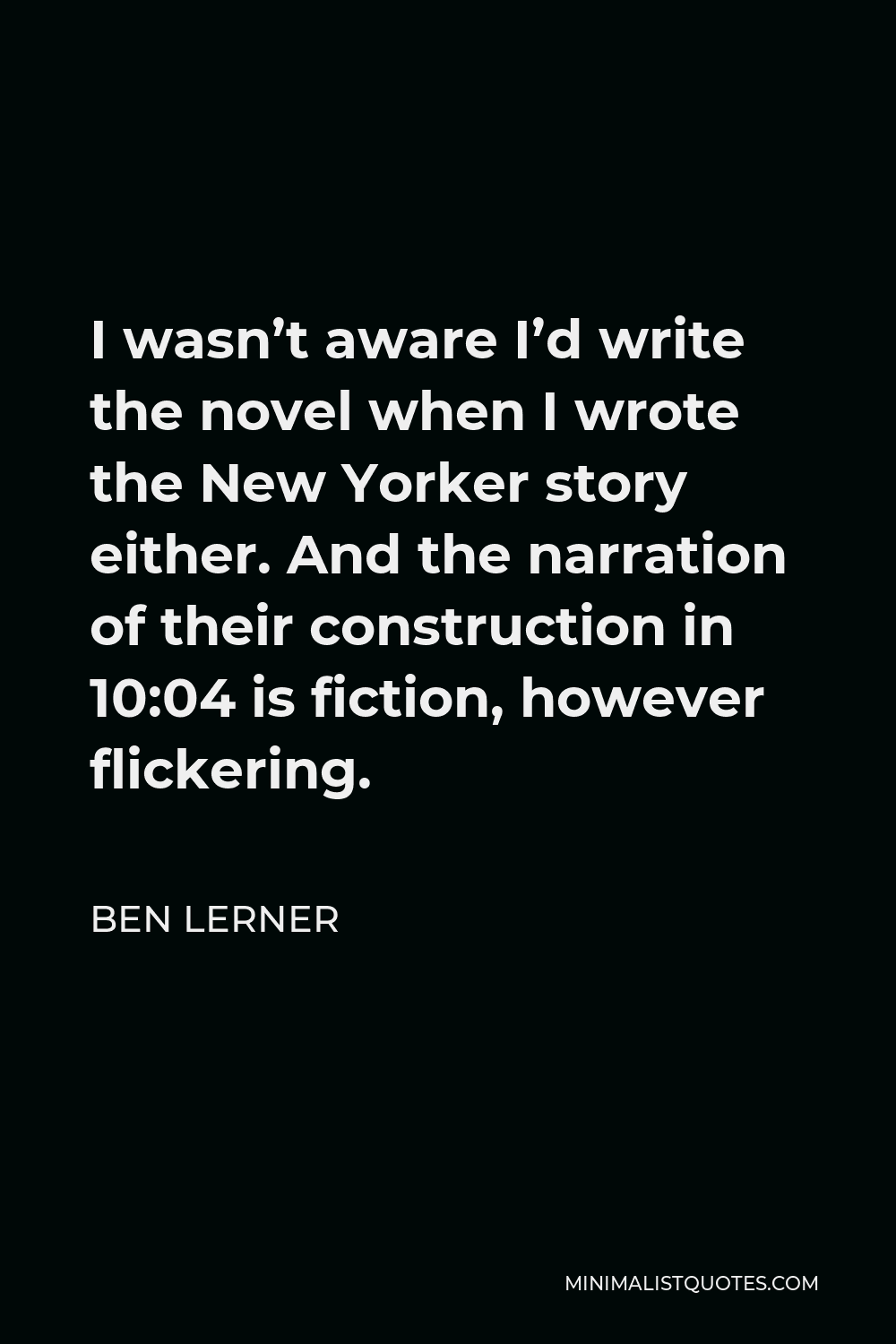
I wasn’t aware I’d write the novel when I wrote the New Yorker story either. And the narration of their construction in 10:04 is fiction, however flickering.
BEN LERNER -





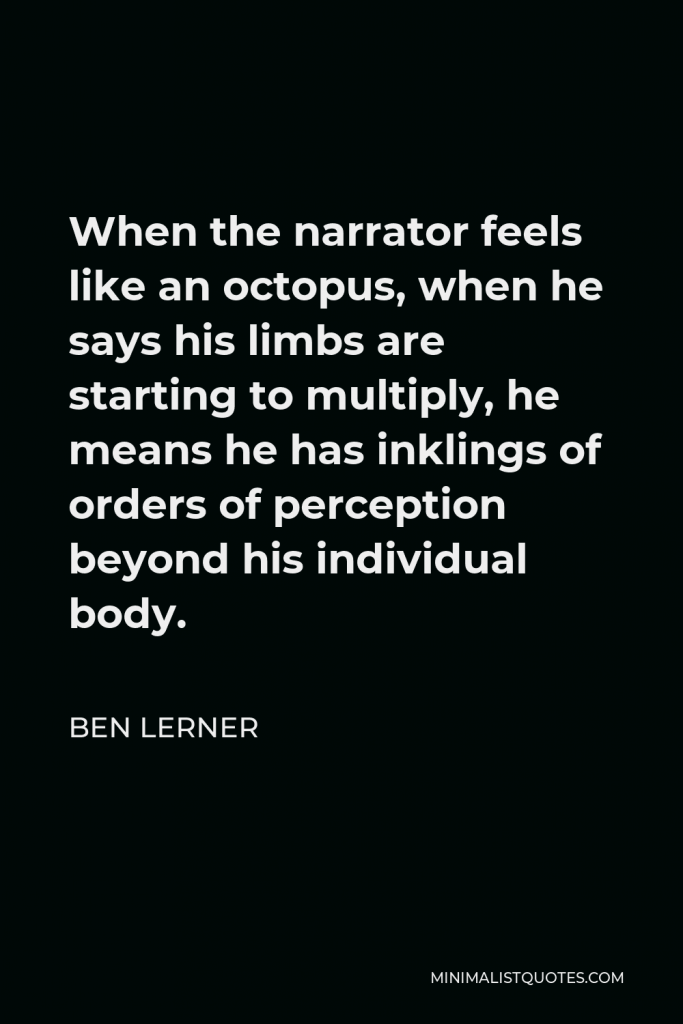

When the narrator feels like an octopus, when he says his limbs are starting to multiply, he means he has inklings of orders of perception beyond his individual body.
BEN LERNER -






Maybe that’s the way I’m private – I respect the privacy of “my” characters? Anyway, we’re getting close to the whole “relatability” and “likability” thing.
BEN LERNER -





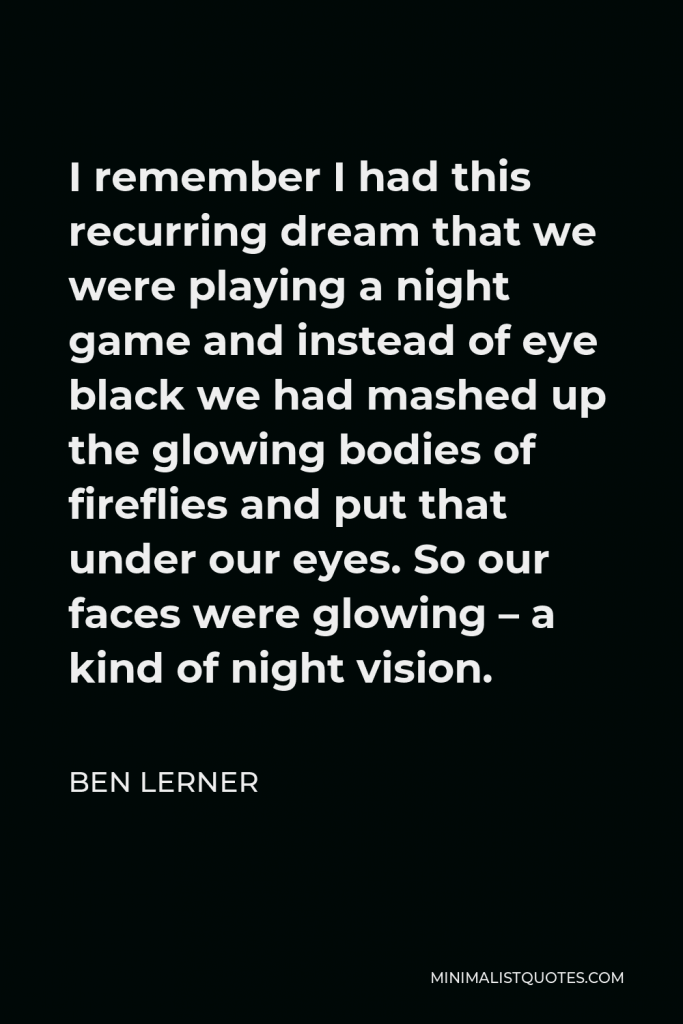

I remember I had this recurring dream that we were playing a night game and instead of eye black we had mashed up the glowing bodies of fireflies and put that under our eyes. So our faces were glowing – a kind of night vision.
BEN LERNER -







I didn’t want to write another book about fraudulence.
BEN LERNER -





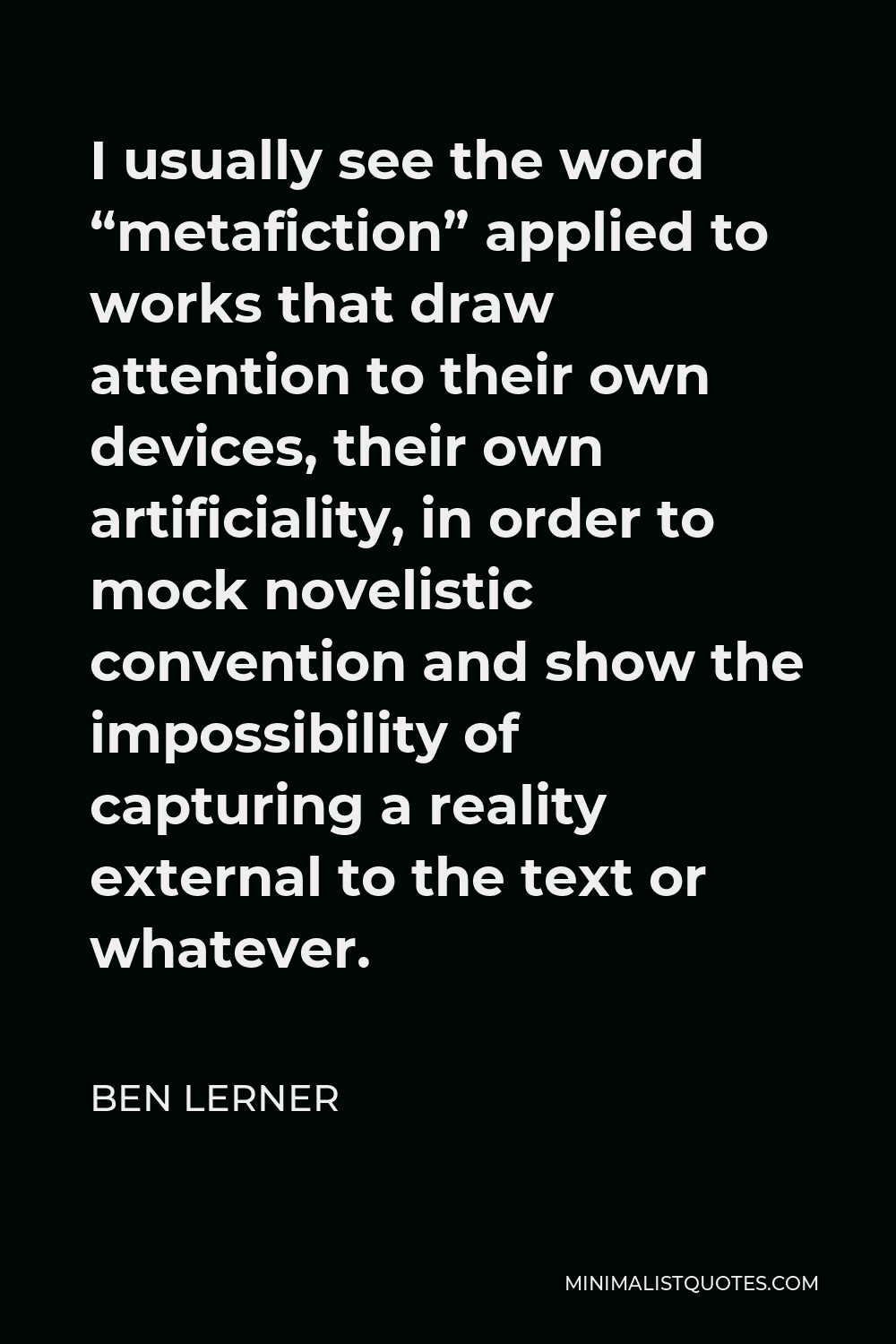
I usually see the word “metafiction” applied to works that draw attention to their own devices, their own artificiality, in order to mock novelistic convention and show the impossibility of capturing a reality external to the text or whatever.
BEN LERNER -





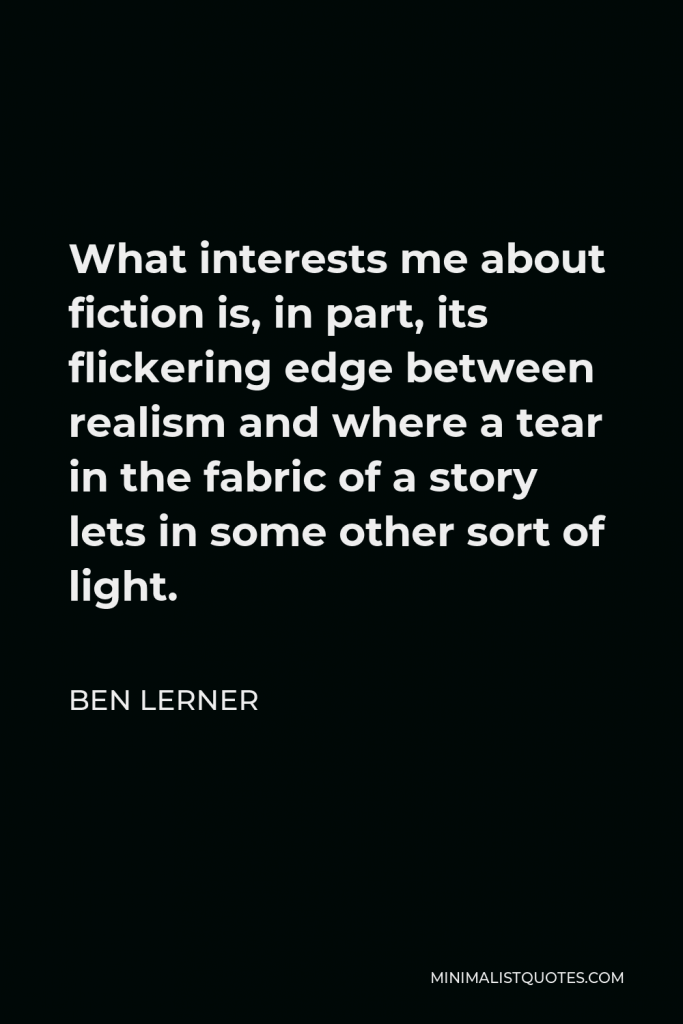

What interests me about fiction is, in part, its flickering edge between realism and where a tear in the fabric of a story lets in some other sort of light.
BEN LERNER -







Every relationship can feel saturated by market logic or at best purchased at the price of the immiseration of others.
BEN LERNER -





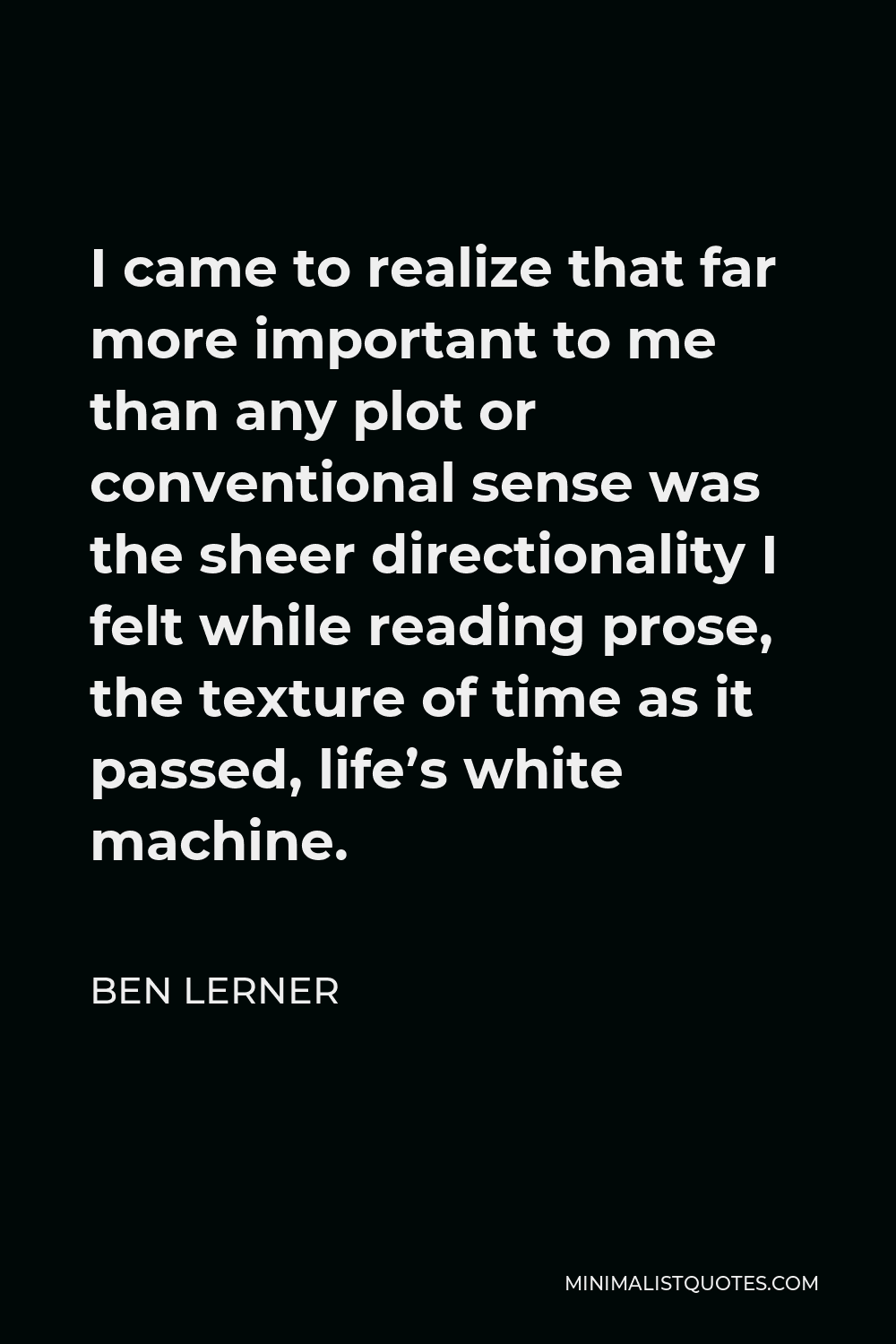
I came to realize that far more important to me than any plot or conventional sense was the sheer directionality I felt while reading prose, the texture of time as it passed, life’s white machine.
BEN LERNER -





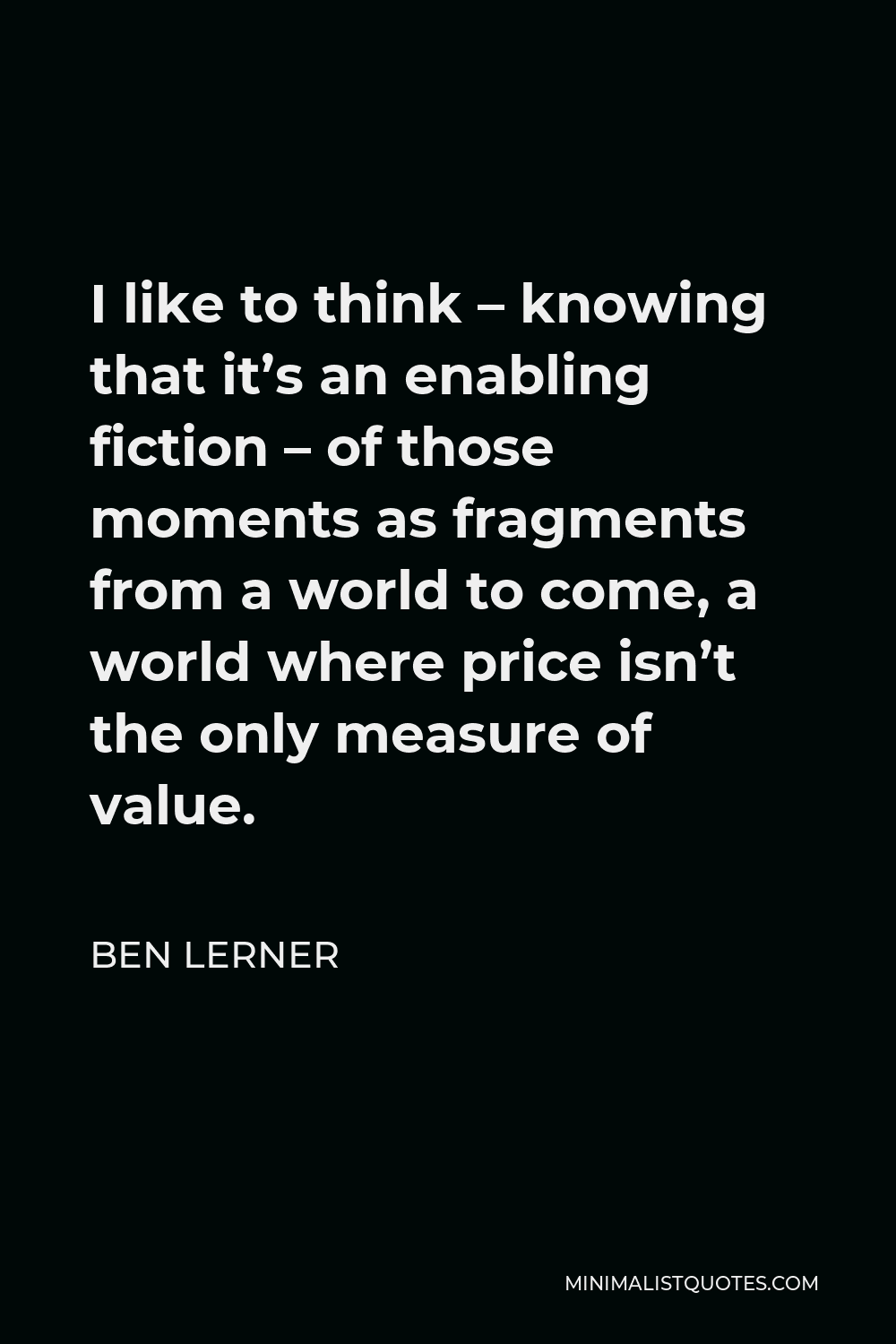
I like to think – knowing that it’s an enabling fiction – of those moments as fragments from a world to come, a world where price isn’t the only measure of value.
BEN LERNER -







Henry James claim that if you want to be a novelist you should be somebody on whom nothing is lost.
BEN LERNER







